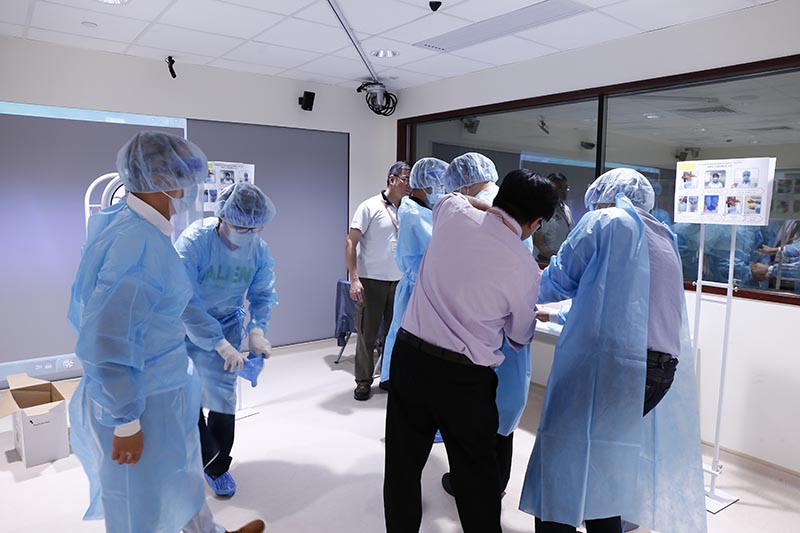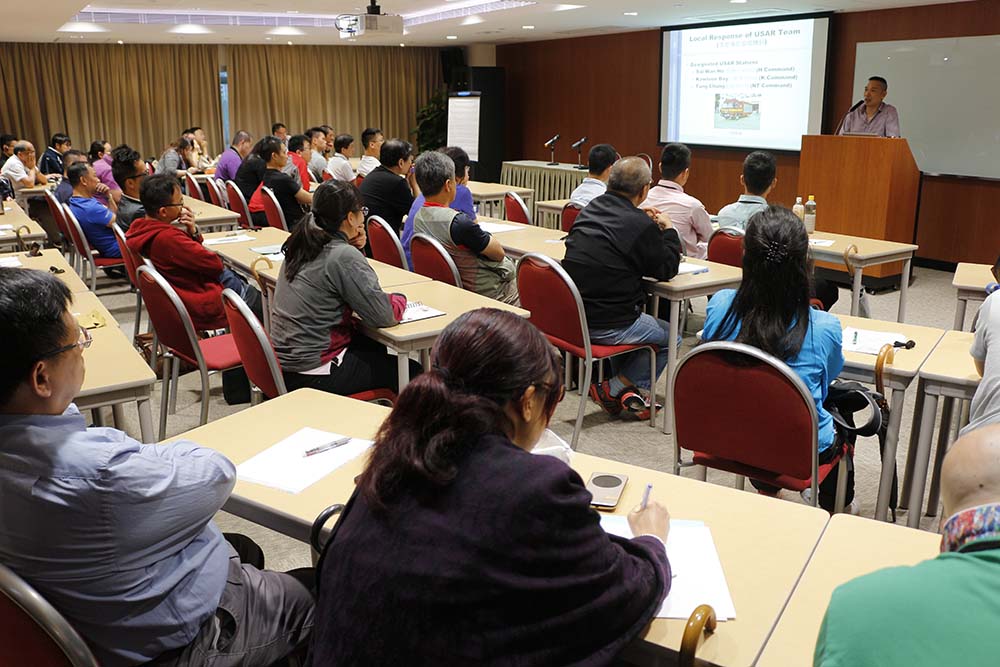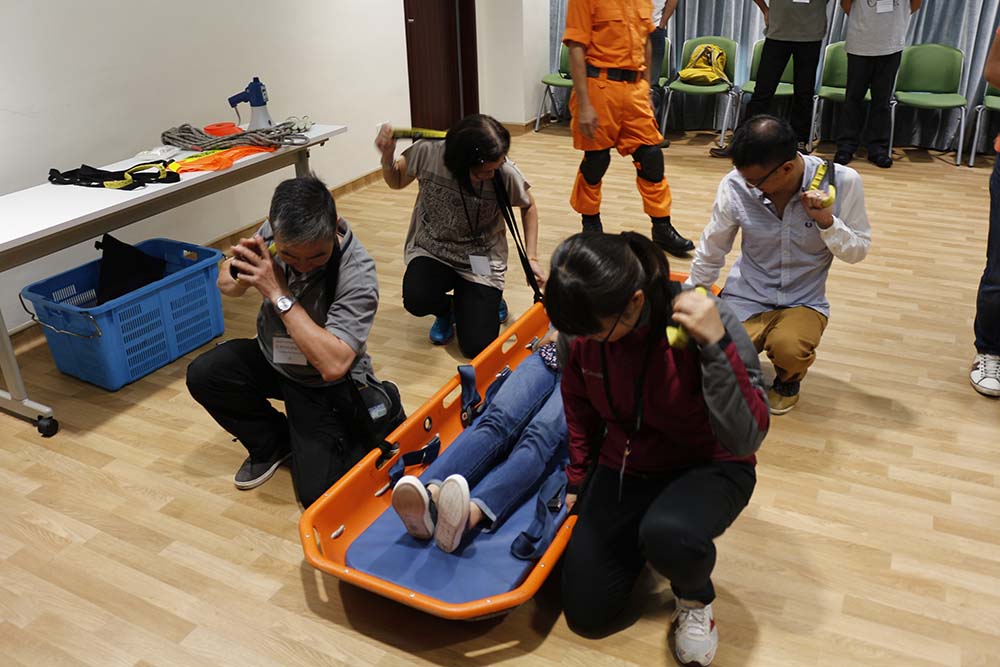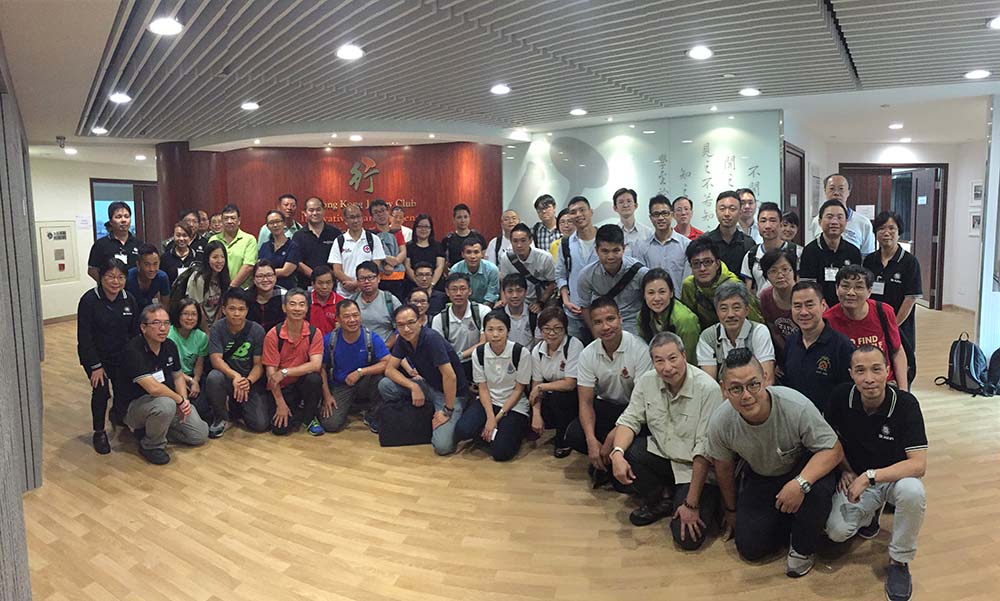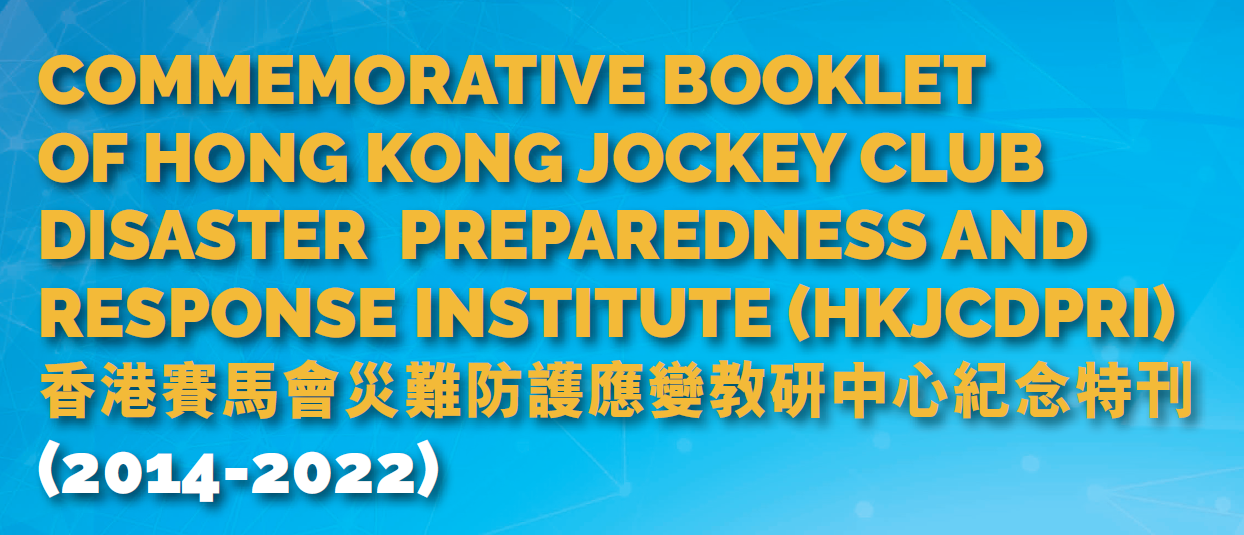You are here
Upcoming Events & Training Courses
Upcoming Events & Training Courses
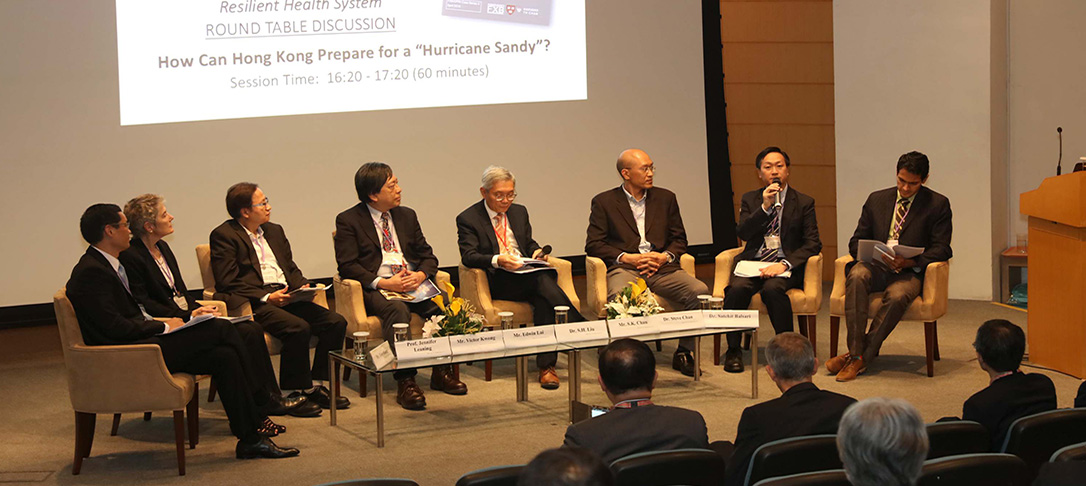
Upcoming Events & Training Courses
2015
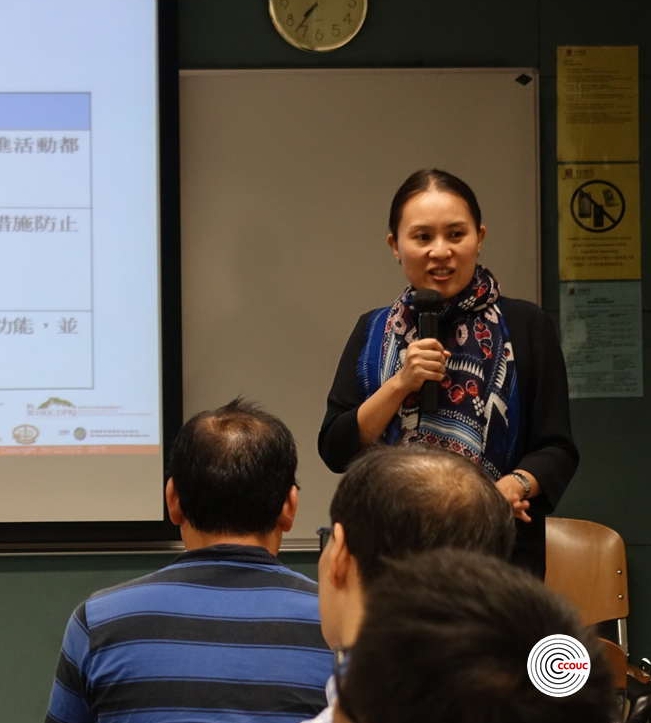
Asia-Pacific Region suffers the highest number of disasters across the globe. As Hong Kong is a key member in the region and one of the most densely populated cities in the world, both its public health and education sectors should play pivotal roles in disaster preparedness and response.
The Collaborating Centre for Oxford University and CUHK for Disaster and Medical Humanitarian Response (CCOUC) and the Hong Kong Jockey Club Disaster Preparedness and Response Institute (HKJCDPRI) jointly organised the Train-the-Trainer Programme on Disaster Preparedness and Response for Secondary School Teachers. The programme aims to enhance community resilience and promote disaster awareness in Hong Kong by strengthening the secondary school Liberal Studies curriculum.
The train-the-trainer programme was kicked off on 13 October 2015. Professor Emily Chan, the Director of CCOUC, delivered the first training entitled “The Relationship between Disasters and Public Health Using Hong Kong as a Case Study”, which was well received by course participants. Topics such as common disasters in Hong Kong, myths of disasters, disaster preparedness and responses were discussed.
Teachers from various secondary schools showed their interests in incorporating these topics into the current Liberal Studies curriculum, and would help distributing learning booklets prepared by CCOUC to their students. CCOUC believes that secondary school teachers are important agents to disseminate the crucial messages of disaster preparedness to the younger generation and their families.
In the coming year, the programme will introduce three more topics, namely, "Environmental Hazards and Public Health Responses in Hong Kong", "Infectious Diseases and Epidemiology: Why is the Threat of Infectious Diseases Growing?", and the "Impact of Globalization on Climate Change and Population".
To know more about the programme, please visit: http://ccouc.org/programme-2

Professor Emily Chan delivered the first training entitled “The Relationship between Disasters and Public Health Using Hong Kong as a Case Study”.

Participating teachers discussed case study during the training.
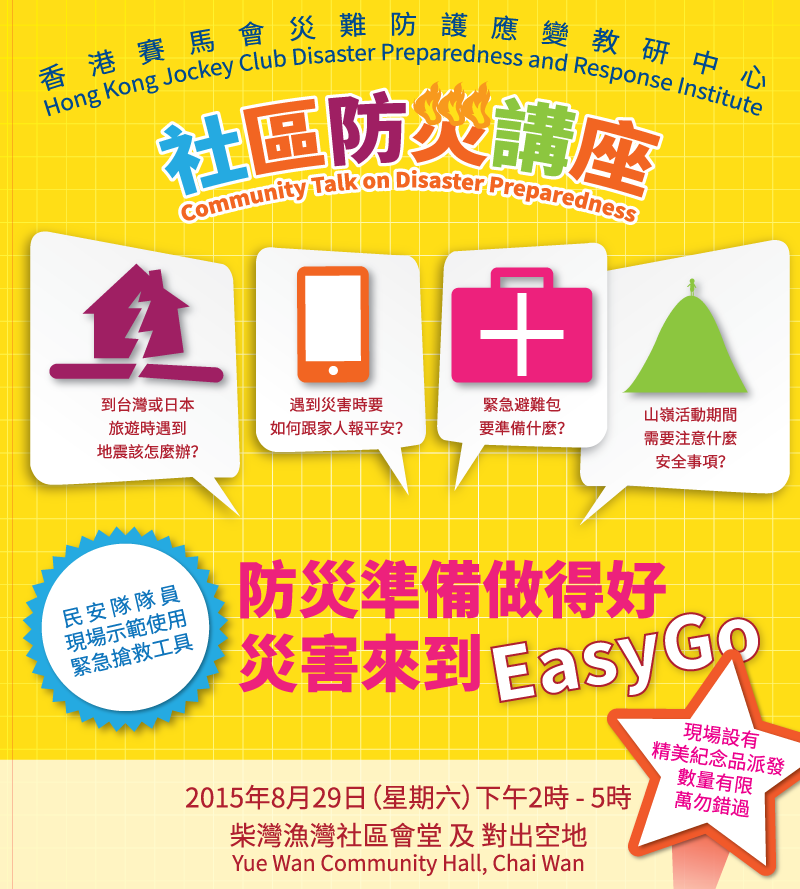
Hong Kong has suffered its fair share of extreme disaster events owing to the climate change. Yet, most of us are unaware how prepared Hong Kong is for the impacts of disasters.
To enhance the awareness and understanding of general public on various hazards and their related risks to Hong Kong, the Hong Kong Jockey Club Disaster Preparedness and Response Institute (HKJCDPRI) will launch a series of public education campaigns jointly with different community-based organisations, hoping to raise the community’s preparedness and resilience of natural and manmade disasters.
We are delighted to receive the support from the Civil Aid Service (CAS) and Eastern District Council in our first community activity entitled “Safer Living - Reducing Disasters Risks”, which will be held at Yue Wan Community Hall (Chai Wan) on 29th August (Saturday). The activity will feature both demonstration on emergency rescue and useful information on how we can prepare for the disasters. All members of the public are welcome. Admission is free.


Supported by six organisations, Ambulance Service Institute, Civil Aid Service, Fire Service Department, Hong Kong Disaster Medicine Association, Hong Kong Red Cross, and Hong Kong St John Ambulance, the first session of the Disaster Field Responder Course was held on 15 August 2015. A total of 45 participants from the six supporting organisations attended the first training class on 15 August 2015. The course aims to enhance first aiders’ disaster response capacity with updated knowledge and essential practical skills in disaster situations. It covers topics on command and coordination, practical first responders’ practical skills in disaster situations, special situations and scenarios, as well as psychological support.
The Disaster Field Responder Course was attended by participants from six organisations contributing to emergencies in HK: Ambulance Service Institute, Civil Aid Service, Fire Service Department, Hong Kong Disaster Medicine Association, Hong Kong Red Cross, and Hong Kong St John Ambulance
Apart from lectures, practical skills training was also key part of the course.
A group photo after the first lesson held in the Hong Kong Jockey Club Innovative Learning Centre for Medicine of Hong Kong Academy of Medicine on 15 August 2015.
Fatal error: Allowed memory size of 134217728 bytes exhausted (tried to allocate 29696 bytes) in /var/www/html/website/drupal/modules/system/image.gd.inc on line 256
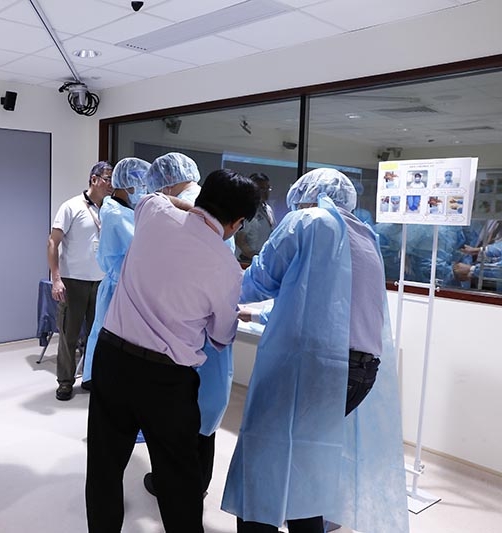
The Hong Kong Jockey Club Disaster Preparedness and Response Institute (HKJCDPR) organized an Ebola Preparedness Seminar on 20 August 2014, jointly with the Hong Kong Medical Association. The seminar was supported by the Centre for Health Protection, Hong Kong Red Cross and Médecins Sans Frontières Hong Kong.
Dr Donald Li, President of Hong Kong Academy of Medicine, said, "Hong Kong as a leading international destination for worldwide travellers is potentially vulnerable to an Ebola outbreak. As WHO Director General Dr Margaret Chan iterated, the most important aspect in managing the current Ebola threat is not to be complacent." Dr the Hon Ko Wing-man, who attended the opening ceremony as Guest of Honour, urged the healthcare profession and the public to prepare our city for the fight against the deadly Ebola disease.
The half-day seminar aimed to provide healthcare professionals, especially medical doctors in private practice, with some much-needed knowledge and techniques in identifying Ebola symptoms and dealing with suspected patients in the community setting. The seminar featured a scientific session and a practical session on donning and doffing of personal protective equipment. It attracted the participation of more than 100 healthcare practitioners.
